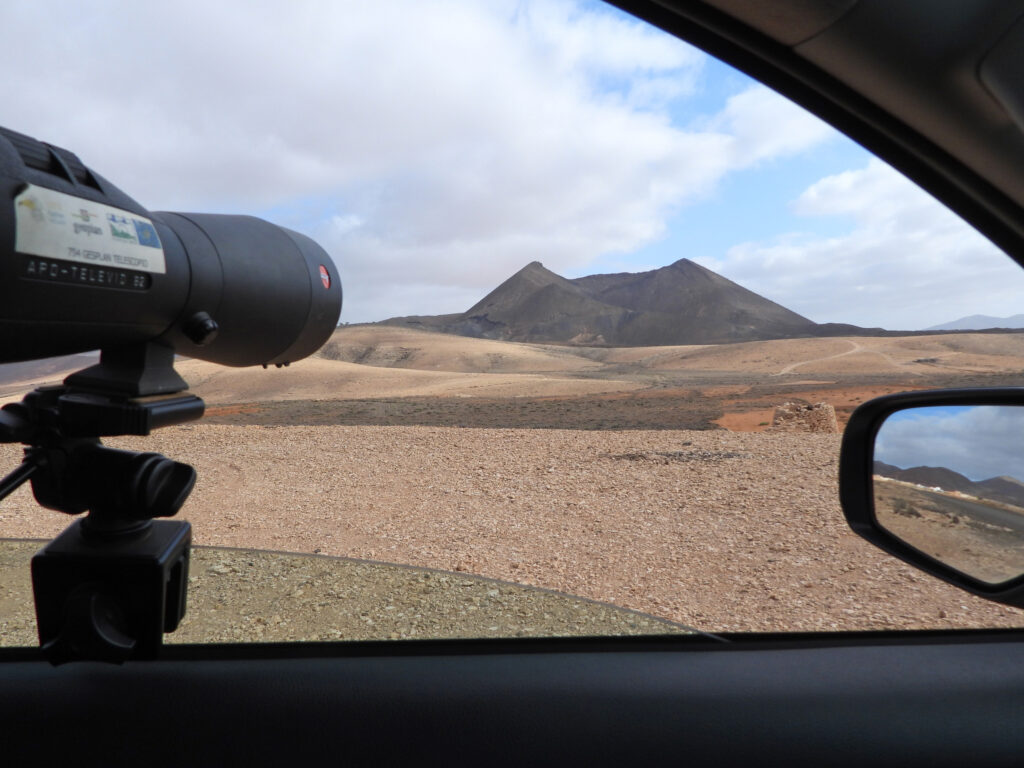On 3 March 2020, the annual surveillance activity of the Egyptian vulture nesting areas began, envisaged by action C.2 of the LIFE Egyptian vulture project. The same territories of the year 2019 are being visited in order to detect the disorders that may affect them during the reproductive period.
In particular, specific monitoring of 11 territories is being carried out, six of which by direct observation and five by the use of photo traps. The activity is carried out by GESPLAN staff with the coordination of the General Directorate for the fight against climate change and for the environment of the Gobierno de Canaria.

Until now, the incidence of human activity has been minimal since the state of alarm for the emergency COVID-19 has been decreed by the Spanish government on March 14, 2020. Despite this favorable situation for the Egyptian vultures, some couples have interrupted the incubation (Valles de Ortega and La Torre 2) and others have not made any deposition (Tiscamanita y La Caldereta). In the remaining territories, couples are incubating.
Before the declaration of the alarm status, the main disturbances detected had been the movement of bikers and motorized vehicles as well as the passage of hikers and walkers. At the moment the recorded disturbances are reduced to motorized vehicles passing on the dirt roads close to the nests, but it doesn’t seem having a negative impact on reproduction.This makes us optimistic for the next few months and we hope that an important number of couples will successfully complete the reproduction this year.

